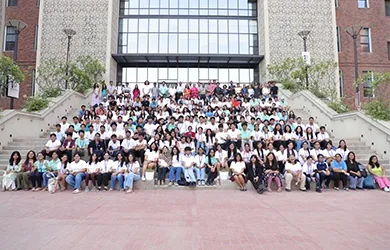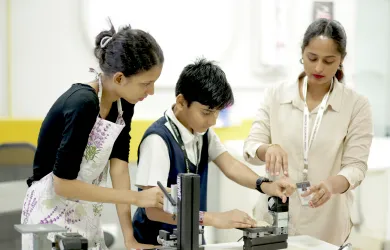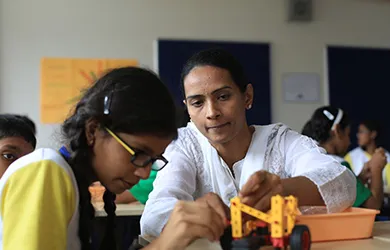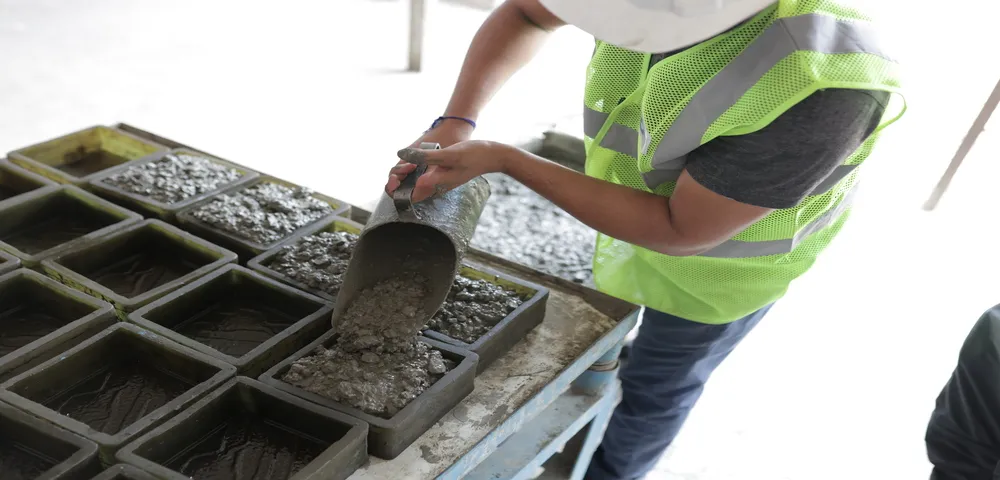- Our Story
- Our Impact
-
Our Projects
Residential
Commercial
- Careers
Save water in building construction
By The Hindu
March 27, 2023As a matter of fact, water is becoming scarcer as local sources are constantly depleting and disappearing. While urbanization and modernization are essential, we cannot ignore that growing cities and populations, coupled with changing climate, are placing unprecedented pressure on the water. According to the World Economic Forum, we may face a 40% global gap between water supply and demand by 2030. While the scenario seems grim, it also provides an excellent opportunity to work on and make water conservation a vital agenda to provide safer water and better manage our water resources for a better future.
The World Water Day theme of 2023 by the UN, "Be the Change," focuses on accelerating change to solve the water and sanitation crisis. The aim is to encourage people of the world to implement the changes in their lives in how they use, consume, and manage water. One thing that I feel strongly about. To bring in large-scale transformations, it's the collective job of policymakers, corporates like us, and millions of people who can take action to create the desired impact.
Nearly 120 million households in India lack access to clean water, the highest number in the world as per the UN-Water Index. As the Government intends massive housing schemes, it must consider the need for smart water management, especially under the Smart Cities Mission.
While all stakeholders and industries should focus on playing their role to play in tackling the global water crisis, it is imperative for the real estate industry to do its bit in driving the water conservation agenda along with its mission to accelerate urbanization. A lot can be done by real estate organizations that can take different measures to safeguard our freshwater sources. Therefore, the industry must lead the way in assuring that communities remain irrepressible in the face of any impending water crisis.
Ensure Water Conservation:
Consumption can be reduced by implementing simple measures like installing low-flow water fixtures in homes and offices while utilizing recycled water for secondary usages like irrigation, flushing, cooling, and different industrial purposes, further decreasing pressure on valuable water resources. Water treatment systems also ensure that contaminated water does not get mixed with the clean ground and surface water sources. More advanced treatment systems like IPR or DPR (indirect or direct potable reuse) make treated water to be used for potable or primary purposes. These treatment systems have been successfully executed at scale in many instances.
One of the fundamental ways to ensure water conservation is by measuring its usage. It is accurate for water conservation also; water metering is essential to limit water consumption and create awareness among the users and communities about their demand profiles. Simple awareness campaign activations can be done for all the stakeholders, making it more effective if backed by relevant and authentic consumption data.
Even the best-designed water networks have leakages; if they are not rectified, they can end up with a huge water loss. Using good quality materials in water distribution, regular preventive maintenance through continuous monitoring, and fixing any leakages in the system by using technology can prevent a considerable amount of water wastage.
Responsible water consumption also calls for the development of landscapes built with native species that are strong and which use less water than non-native varieties. Newer irrigation methods like drip irrigation and timed release of water are practical measures that can be adopted while developing smart climate-conscious designs.
Safeguard the Water Resources:
It is important to safeguard and ensure that the polluted water is not mixed with natural water resources. Steps to water safety involve treating water to a minimum required quality that can be later released into natural water bodies, deployment of filtration chambers, and oil interceptors in the drainage systems.
Floods are also one of the major reasons for water contamination; preventing them in the buildings by carefully assessing the risks and deploying the correct and essential mitigation measures ensures that the underground reservoirs and groundwater sources remain guarded against the polluted flood water. This can also help protect people from water-borne diseases resulting from contaminated water.
Restoring Water Resources:
As per a report by the Central Ground Water Board of India, India has also reached alarming levels of groundwater exploitation for self-use and agriculture. The levels are this high because India is believed to be the home to 1/6th of humanity, while it only has 4% of global freshwater resources.
This can pacify by ensuring rainwater recharge and harvesting for replenishing the aquifers and surface water resources. Effective rainwater harvesting technique is one of the best techniques to help with water resilience. Restricting runoff by limiting the excessive concretization of urban areas is another way to reinvigorate natural water sources. Urban runoff is a complex term resulting in the loss of valuable and abundant rainwater and is a concerning cause of water pollution. Softer landscapes, abundant greenery, and natural ground hydrology helps us to rejuvenate the exploited & vulnerable water sources available to us.
Some of these aspects mentioned above are mandated by regulations, while green building certification bodies require only a few. Many elements are kept open for voluntary adoption by real estate developers and societies. Once we realize that it is our duty to make this planet a better place to live for our future generations, climate-responsive and adaptive design implementation will become a regular practice for every real estate developer. On World Water Day, we must come together, acknowledge our responsibility, and pledge action to make a water-positive future.
- Aun Abdullah, ESG Leader, Lodha
Published in The Hindu
You may also like



 Enquire
Enquire
 Call
Call
 chat
chat
 Search
Search





